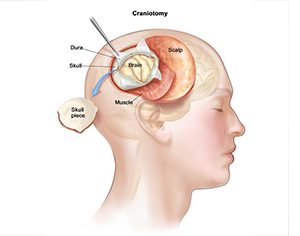
A craniotomy is the surgical removal of a part of the bone from the skull to expose the brain. This section of the bone is called the bone flap. The bone flap is temporarily removed and then replaced after the brain surgery has been done. Some procedures may use the guidance of computers and imaging to reach the precise location within the brain that is to be treated.
This technique requires the use of a frame placed onto the skull or a frameless structure that uses superficially placed markers on the scalp. Scans made of the brain with the help of these imaging techniques provide a three-dimensional image of a tumor within the brain. It is useful in making the distinction between tumor tissue and healthy tissue and reaching the precise location of the abnormal tissue.
What Makes You Eligible For Craniotomy?
A craniotomy may be done for multiple reasons such as:
Types of Craniotomy
Extended Bi-frontal Craniotomy: The extended bi-frontal craniotomy is a traditional skull base procedure generally used to target difficult tumors towards the front of the brain. Here, the surgeons generally recommend it as safer to remove extra bone than to unnecessarily manipulate the brain. The extended bi-frontal craniotomy involves making an incision in the scalp behind the hairline and removing the bone that forms the contour of the orbits and the forehead. This bone is replaced at the end of surgery. Removing this bone allows surgeons to operate in the space between and behind the eyes without having to unnecessarily manipulate the brain. The extended bi-frontal craniotomy is typically used for those tumors that cannot be removed by minimally invasive approaches.
Types of tumors that can be treated with the extended bi-frontal craniotomy usually include - Meningiomas, Esthesioneuroblastomas, and Malignant skull base tumors.
Minimally Invasive Supra-Orbital “Eyebrow” Craniotomy:
Supra-orbital craniotomy also often referred to as "eyebrow" craniotomy is a procedure used to remove brain tumors. In this procedure, neurosurgeons make a small incision within the eyebrow to access tumors in the front of the brain or as referred to as ‘pituitary tumors’. This approach is used when a tumor is very large or close to the optic nerves or vital arteries. Since it is a minimally invasive procedure, supra-orbital “eyebrow” craniotomy often provides less pain than open craniotomy accompanied with faster recovery and minimal scarring.
Retro-Sigmoid “Keyhole” Craniotomy
Retro-sigmoid craniotomy also often referred to as "keyhole" craniotomy is a minimally-invasive surgical procedure performed to remove brain tumors. This procedure allows for the removal of skull base tumors through a small incision behind the ear, providing access to the cerebellum and brainstem. Benefits of "keyhole" craniotomy include less pain after the procedure as compared to postoperative in open craniotomy, less scarring and a more rapid recovery.
Orbitozygomatic Craniotomy
The Orbitozygomatic craniotomy is a traditional skull base procedure used to target difficult tumors and aneurysms. This procedure is typically used for those lesions that cannot be removed by more minimally invasive procedures. Orbitozygomatic craniotomy involves making an incision in the scalp behind the hairline and removing the bone that forms the contour of the orbit and cheek. This enables surgeons to reach deeper and difficult parts of the brain while minimizing severe damage to the brain. Brain tumors that may be treated with Orbitozygomatic craniotomy include Craniopharyngioma, Pituitary tumors, and Meningiomas.
Translabyrinthine Craniotomy
A Translabyrinthine craniotomy is a procedure that involves making an incision in the scalp behind the ear, then removing the mastoid bone and some of the inner ear bone that contains receptors for balance. The surgeon then finds and removes the tumor or as much of the tumor as possible without the risk of severe damage to the brain.
What is Craniotomy?
A craniotomy is an opening of the skull enclosing the brain and its surrounding structures. Generally, in this procedure, the bone is preserved and later fixed into place at the end of the surgical procedure.
Why is it done?
This procedure is done if swelling occurs after the brain surgery or if the skull bone flap cannot be replaced for other reasons.
How long is the recovery?
It can take 4 to 8 weeks to recover from surgery. The cuts or incisions may be sore for about 5 days after surgery. There might be persistent numbness and pains near the wound, or swelling and bruising around the eyes.
Types of Craniotomy
Extended Bi-frontal Craniotomy: The extended bi-frontal craniotomy is a traditional skull base procedure generally used to target difficult tumors towards the front of the brain. Here, the surgeons generally recommend it as safer to remove extra bone than to unnecessarily manipulate the brain. The extended bi-frontal craniotomy involves making an incision in the scalp behind the hairline and removing the bone that forms the contour of the orbits and the forehead. This bone is replaced at the end of surgery. Removing this bone allows surgeons to operate in the space between and behind the eyes without having to unnecessarily manipulate the brain. The extended bi-frontal craniotomy is typically used for those tumors that cannot be removed by minimally invasive approaches.
Types of tumors that can be treated with the extended bi-frontal craniotomy usually include - Meningiomas, Esthesioneuroblastomas, and Malignant skull base tumors.
Minimally Invasive Supra-Orbital “Eyebrow” Craniotomy:
Supra-orbital craniotomy also often referred to as "eyebrow" craniotomy is a procedure used to remove brain tumors. In this procedure, neurosurgeons make a small incision within the eyebrow to access tumors in the front of the brain or as referred to as ‘pituitary tumors’. This approach is used when a tumor is very large or close to the optic nerves or vital arteries. Since it is a minimally invasive procedure, supra-orbital “eyebrow” craniotomy often provides less pain than open craniotomy accompanied with faster recovery and minimal scarring.
Retro-Sigmoid “Keyhole” Craniotomy
Retro-sigmoid craniotomy also often referred to as "keyhole" craniotomy is a minimally-invasive surgical procedure performed to remove brain tumors. This procedure allows for the removal of skull base tumors through a small incision behind the ear, providing access to the cerebellum and brainstem. Benefits of "keyhole" craniotomy include less pain after the procedure as compared to postoperative in open craniotomy, less scarring and a more rapid recovery.
Orbitozygomatic Craniotomy
The Orbitozygomatic craniotomy is a traditional skull base procedure used to target difficult tumors and aneurysms. This procedure is typically used for those lesions that cannot be removed by more minimally invasive procedures. Orbitozygomatic craniotomy involves making an incision in the scalp behind the hairline and removing the bone that forms the contour of the orbit and cheek. This enables surgeons to reach deeper and difficult parts of the brain while minimizing severe damage to the brain. Brain tumors that may be treated with Orbitozygomatic craniotomy include Craniopharyngioma, Pituitary tumors, and Meningiomas.
Translabyrinthine Craniotomy
A Translabyrinthine craniotomy is a procedure that involves making an incision in the scalp behind the ear, then removing the mastoid bone and some of the inner ear bone that contains receptors for balance. The surgeon then finds and removes the tumor or as much of the tumor as possible without the risk of severe damage to the brain.
What is Craniotomy?
A craniotomy is an opening of the skull enclosing the brain and its surrounding structures. Generally, in this procedure, the bone is preserved and later fixed into place at the end of the surgical procedure.
Why is it done?
This procedure is done if swelling occurs after the brain surgery or if the skull bone flap cannot be replaced for other reasons.
How long is the recovery?
It can take 4 to 8 weeks to recover from surgery. The cuts or incisions may be sore for about 5 days after surgery. There might be persistent numbness and pains near the wound, or swelling and bruising around the eyes.

Rating :

Wockhardt Hospital's existence is the result of a 40-year tradition of caring and innovation nurtured by Wockhardt Ltd, India's 5th largest Pharmaceutical and Healthcare company with a presence in 20 countries across the globe. Within a short period since i.....

Rating :
ARMC (Asian Reproductive Centre Private Limited) was founded in June 2009 by establishing its first ever day care fertility centre at Kozhikode, Kerala, India. IVF-ICSI has been a part of the services provided by this centre since its conception. As Managing director of ARMC IVF group of Ferti.....

Rating :
India’s large and diverse population warrants an efficient health care infrastructure that should be accessible to all strata’s of society. Good quality health care should not be a privilege of the elite only. Metro Group.....

Rating :
Hospital Profile Description Currently Not Available

Rating :
Hospital Profile Description Currently Not Available

Rating :

The genesis of Sunshine Global Hospital, Surat heralds transparent and trustworthy doctor-patient relationship and its has also put an end to long awaited quest for the multispecialty and tertiary centre in Surat. The .....

Rating :


As one of India’s foremost names in healthcare, Moolchand has been setting standards for the past half century. For over five decades we have been providing healthcare services to three generations of Delhites with care and dedication. Our vi.....

Rating :
DR Raj Kanna is known for his supreme results using cutting edge technology and is one of the very few surgeons in Asia to do Computer Assisted Knee Replacement Surgery. He is also an expert in Key-Hole Surgeries for sports injury. He is attached to Top hospitals in Chennai which are NABH accr.....

Rating :
Dr Deepali Bhardwaj Dermatologist & Laser Surgeon - M.B.B.S, D.VDL, M.Phil Cosmetology, M.D. (USAIM) Fellow ACSI (Safdarjung Hospital); IADVL (PGI Chandigarh).Founder & CEO of her own initia.....

Rating :
With a legacy of excellence in multi super specialty healthcare, MaxCure Hospitals now extends its services to Hi-tech City & Secretariat. Presenting MaxCure Hospitals, A first-of-its-kind Hospital that brings uniform expertise in all areas of medicine under on.....
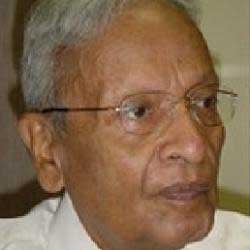
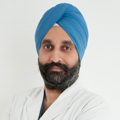
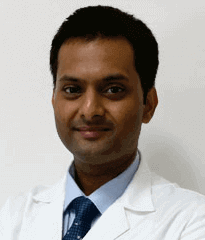
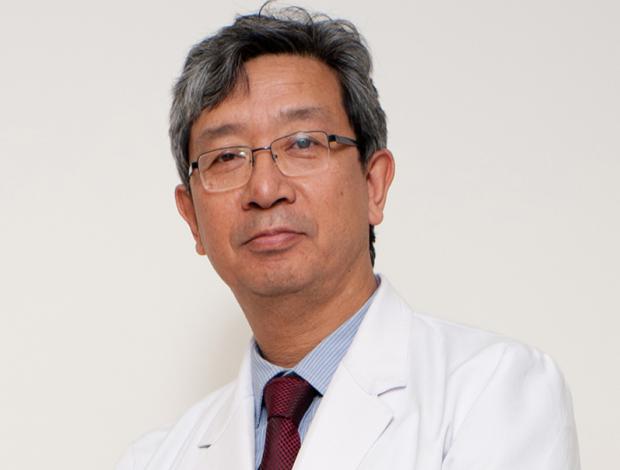



A craniotomy is the surgical removal of a part of the bone from the skull to expose the brain. This section of the bone is called the bone flap. The bone flap is temporarily removed and then replaced after the brain surgery has been done. Some procedures may use the guidance of computers and imaging to reach the precise location within the brain that is to be treated.
This technique requires the use of a frame placed onto the skull or a frameless structure that uses superficially placed markers on the scalp. Scans made of the brain with the help of these imaging techniques provide a three-dimensional image of a tumor within the brain. It is useful in making the distinction between tumor tissue and healthy tissue and reaching the precise location of the abnormal tissue.
What Makes You Eligible For Craniotomy?
A craniotomy may be done for multiple reasons such as:
Types of Craniotomy
Extended Bi-frontal Craniotomy: The extended bi-frontal craniotomy is a traditional skull base procedure generally used to target difficult tumors towards the front of the brain. Here, the surgeons generally recommend it as safer to remove extra bone than to unnecessarily manipulate the brain. The extended bi-frontal craniotomy involves making an incision in the scalp behind the hairline and removing the bone that forms the contour of the orbits and the forehead. This bone is replaced at the end of surgery. Removing this bone allows surgeons to operate in the space between and behind the eyes without having to unnecessarily manipulate the brain. The extended bi-frontal craniotomy is typically used for those tumors that cannot be removed by minimally invasive approaches.
Types of tumors that can be treated with the extended bi-frontal craniotomy usually include - Meningiomas, Esthesioneuroblastomas, and Malignant skull base tumors.
Minimally Invasive Supra-Orbital “Eyebrow” Craniotomy:
Supra-orbital craniotomy also often referred to as "eyebrow" craniotomy is a procedure used to remove brain tumors. In this procedure, neurosurgeons make a small incision within the eyebrow to access tumors in the front of the brain or as referred to as ‘pituitary tumors’. This approach is used when a tumor is very large or close to the optic nerves or vital arteries. Since it is a minimally invasive procedure, supra-orbital “eyebrow” craniotomy often provides less pain than open craniotomy accompanied with faster recovery and minimal scarring.
Retro-Sigmoid “Keyhole” Craniotomy
Retro-sigmoid craniotomy also often referred to as "keyhole" craniotomy is a minimally-invasive surgical procedure performed to remove brain tumors. This procedure allows for the removal of skull base tumors through a small incision behind the ear, providing access to the cerebellum and brainstem. Benefits of "keyhole" craniotomy include less pain after the procedure as compared to postoperative in open craniotomy, less scarring and a more rapid recovery.
Orbitozygomatic Craniotomy
The Orbitozygomatic craniotomy is a traditional skull base procedure used to target difficult tumors and aneurysms. This procedure is typically used for those lesions that cannot be removed by more minimally invasive procedures. Orbitozygomatic craniotomy involves making an incision in the scalp behind the hairline and removing the bone that forms the contour of the orbit and cheek. This enables surgeons to reach deeper and difficult parts of the brain while minimizing severe damage to the brain. Brain tumors that may be treated with Orbitozygomatic craniotomy include Craniopharyngioma, Pituitary tumors, and Meningiomas.
Translabyrinthine Craniotomy
A Translabyrinthine craniotomy is a procedure that involves making an incision in the scalp behind the ear, then removing the mastoid bone and some of the inner ear bone that contains receptors for balance. The surgeon then finds and removes the tumor or as much of the tumor as possible without the risk of severe damage to the brain.
What is Craniotomy?
A craniotomy is an opening of the skull enclosing the brain and its surrounding structures. Generally, in this procedure, the bone is preserved and later fixed into place at the end of the surgical procedure.
Why is it done?
This procedure is done if swelling occurs after the brain surgery or if the skull bone flap cannot be replaced for other reasons.
How long is the recovery?
It can take 4 to 8 weeks to recover from surgery. The cuts or incisions may be sore for about 5 days after surgery. There might be persistent numbness and pains near the wound, or swelling and bruising around the eyes.

Rating :

Wockhardt Hospital's existence is the result of a 40-year tradition of caring and innovation nurtured by Wockhardt Ltd, India's 5th largest Pharmaceutical and Healthcare company with a presence in 20 countries across the globe. Within a short period since i.....

Rating :
ARMC (Asian Reproductive Centre Private Limited) was founded in June 2009 by establishing its first ever day care fertility centre at Kozhikode, Kerala, India. IVF-ICSI has been a part of the services provided by this centre since its conception. As Managing director of ARMC IVF group of Ferti.....

Rating :
India’s large and diverse population warrants an efficient health care infrastructure that should be accessible to all strata’s of society. Good quality health care should not be a privilege of the elite only. Metro Group.....

Rating :
Hospital Profile Description Currently Not Available

Rating :
Hospital Profile Description Currently Not Available

Rating :

The genesis of Sunshine Global Hospital, Surat heralds transparent and trustworthy doctor-patient relationship and its has also put an end to long awaited quest for the multispecialty and tertiary centre in Surat. The .....

Rating :


As one of India’s foremost names in healthcare, Moolchand has been setting standards for the past half century. For over five decades we have been providing healthcare services to three generations of Delhites with care and dedication. Our vi.....

Rating :
DR Raj Kanna is known for his supreme results using cutting edge technology and is one of the very few surgeons in Asia to do Computer Assisted Knee Replacement Surgery. He is also an expert in Key-Hole Surgeries for sports injury. He is attached to Top hospitals in Chennai which are NABH accr.....

Rating :
Dr Deepali Bhardwaj Dermatologist & Laser Surgeon - M.B.B.S, D.VDL, M.Phil Cosmetology, M.D. (USAIM) Fellow ACSI (Safdarjung Hospital); IADVL (PGI Chandigarh).Founder & CEO of her own initia.....

Rating :
With a legacy of excellence in multi super specialty healthcare, MaxCure Hospitals now extends its services to Hi-tech City & Secretariat. Presenting MaxCure Hospitals, A first-of-its-kind Hospital that brings uniform expertise in all areas of medicine under on.....






Not Available
Medtravels ensures bridging the gap and providing accessibility for patients to interact directly with healthcare service providers. We remain committed to connecting all stakeholders across geographies, and focusing on taking Healthcare beyond boundaries.

We are one of the first few organizations in India to be NABH certified. This itself speaks out loud about the services and facilities we provide to our clients while ensuring optimum quality at all aspects.

We ensure to bring you the best in terms of both healthcare quality & affordability. We value our customers so providing the best of services to them at an affordable price is our objective.

We understand that getting the first opinion is the most crucial step towards your healthcare journey and so based on your reports, we provide you consultation(s) or opinion(s) from top-notch doctors & consultants without any charges.

Travelling outside your home country can be a rigorous affair. So, here we are, to guide you through all the necessities such as – Medical Visa, Air Bookings, Accommodation, Air Ambulance, Pharmacy, Medical Loan, Leisure Travel.

We constantly strive to provide our clients with maximum options and so we have global coverage in terms of Healthcare Providers. We provide you hospital options from – INDIA, SINGAPORE, THAILAND, MALAYSIA, TURKEY & the list goes on

Our objective is to work with complete transparency with both our partners & clients. With this motto, we maintain not to charge you for anything. When you come for treatment, you pay the hospital directly.
Not Available